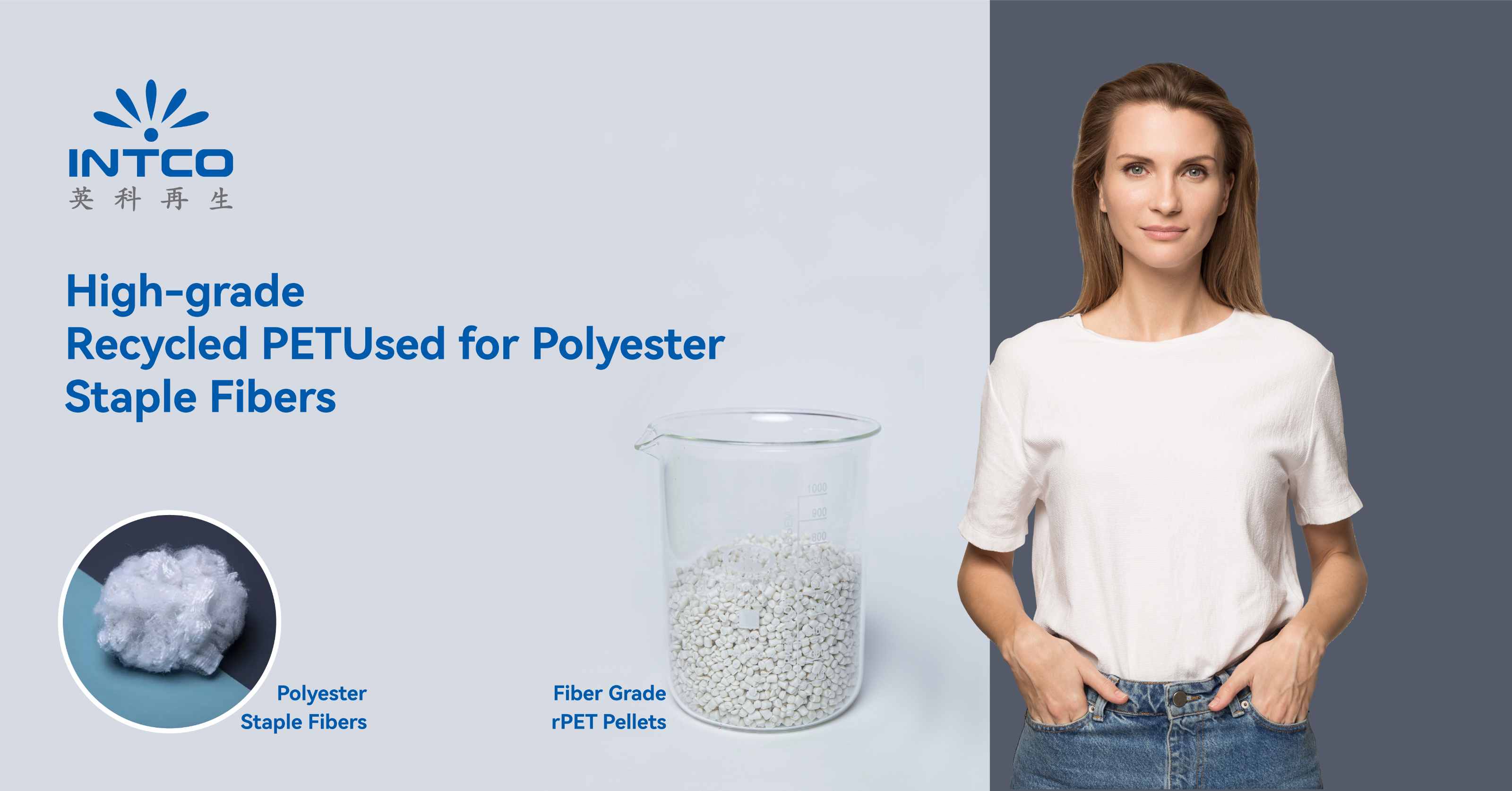Recycled PET for a Greener Future in Textiles
Introduction
As environmental responsibility becomes a global priority, the textile industry is facing both urgent challenges and new opportunities to adopt sustainable solutions. INTCO is dedicated to driving this transformation by helping fibre and fabric manufacturers increase the use of recycled PET pellets in their processes. Through the integration of PET pellets, we enable the production of textiles that are not only high-quality but also aligned with the principles of the circular economy.
According to the UK Circular Plastics Network, polymers play an essential role in textiles. Almost all textile fibres are polymer-based—whether polyester, cotton, nylon, or other specialty materials. Overall, about 60% of these fibres are synthetic polymers, essentially plastics. Polyester dominates this category, with nylon contributing only a small share. This means that fibres derived from fossil resources represent well over half of global textile production, a share that continues to rise as polyester remains more cost-effective than cotton.
The European Environment Agency (EEA) report on plastics in textiles underscores the urgent call for more sustainable textile production. At INTCO, we embrace these insights and align our efforts to not only meet but also surpass industry sustainability standards.
INTCO’s Sustainable Solutions for Textiles
Advancing Recycled Polypropylene and PET: We actively promote the use of recycled polypropylene and PET in textile applications. Compared with virgin materials, these
polymers greatly lower environmental impact and support a circular economy by reducing waste and conserving resources.
Cutting Carbon Emissions: According to Textile Exchange, recycled polyester can reduce greenhouse gas emissions by up to 70% compared with virgin polyester. This reduction
is central to our sustainability approach as we work to lessen the fashion industry’s global carbon footprint.
Balancing Durability with Affordability: We believe sustainability must also be practical. Recycled polyester fabrics combine long-lasting performance with cost-effectiveness,
providing a compelling alternative to conventional textile materials.
The Role of Recycled Materials in the Textile Industry
Environmental Advantages: Incorporating recycled materials such as polypropylene and PET helps cut down on landfill waste while conserving valuable natural resources.
Energy Savings: Producing recycled fibres requires less energy than manufacturing virgin fibres, which in turn reduces carbon emissions.
Rising Consumer Demand: As awareness of sustainability grows, consumers increasingly prefer eco-friendly products. By adopting recycled materials, companies can better align with these market expectations.
Conclusion
In conclusion, INTCO is fully committed to driving sustainability in the textile industry through the use of recycled PET pellets. Guided by industry research and global sustainability trends, INTCO ensures that its practices not only reduce environmental impact but also meet the evolving demands of customers. By prioritising recycled PET pellets and championing responsible production, INTCO is paving the way toward a more sustainable and circular future for textiles.
